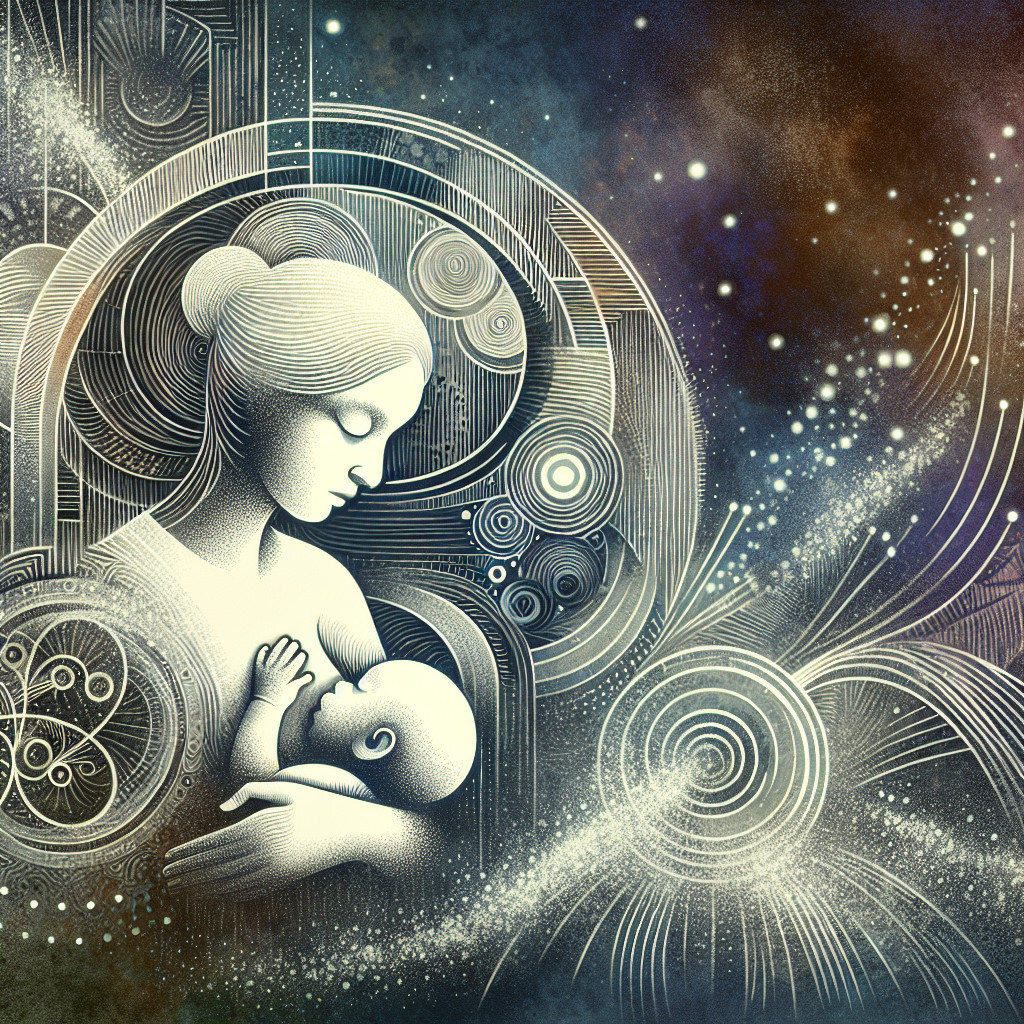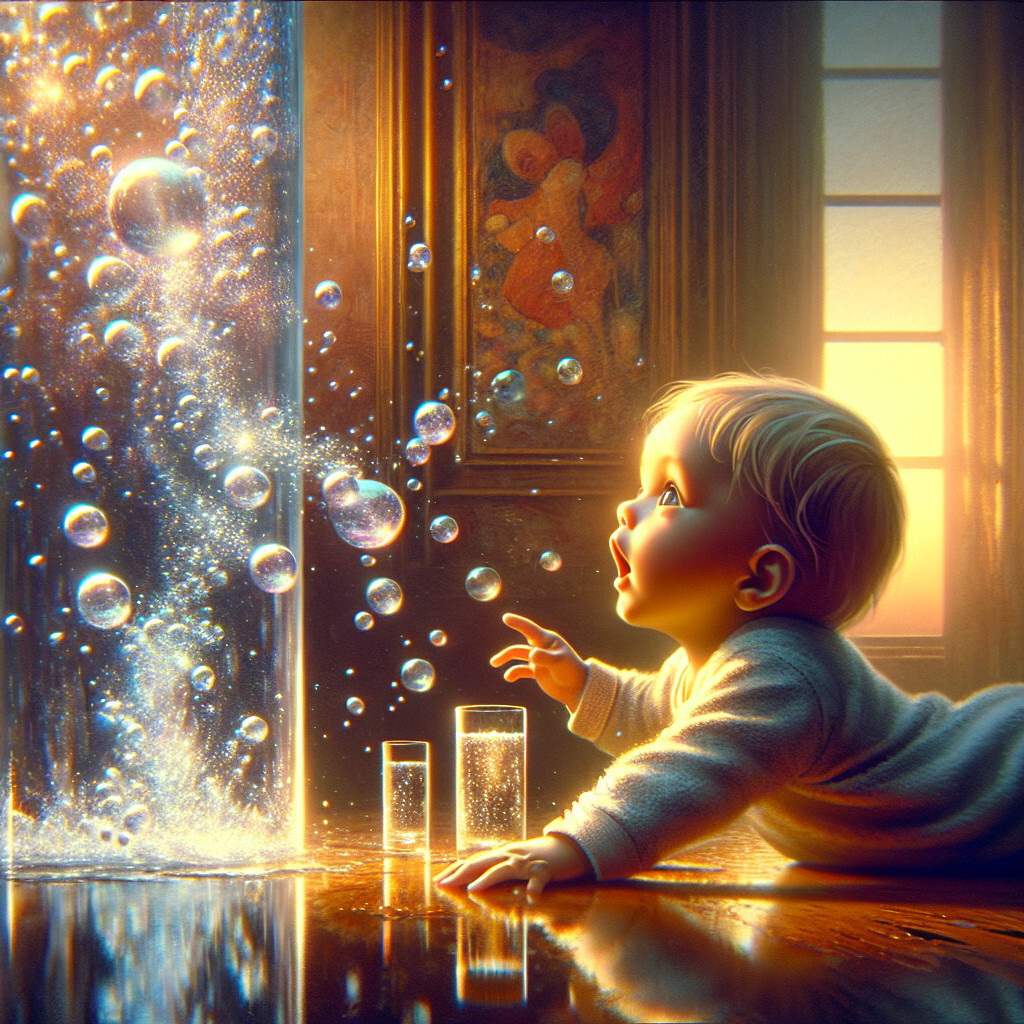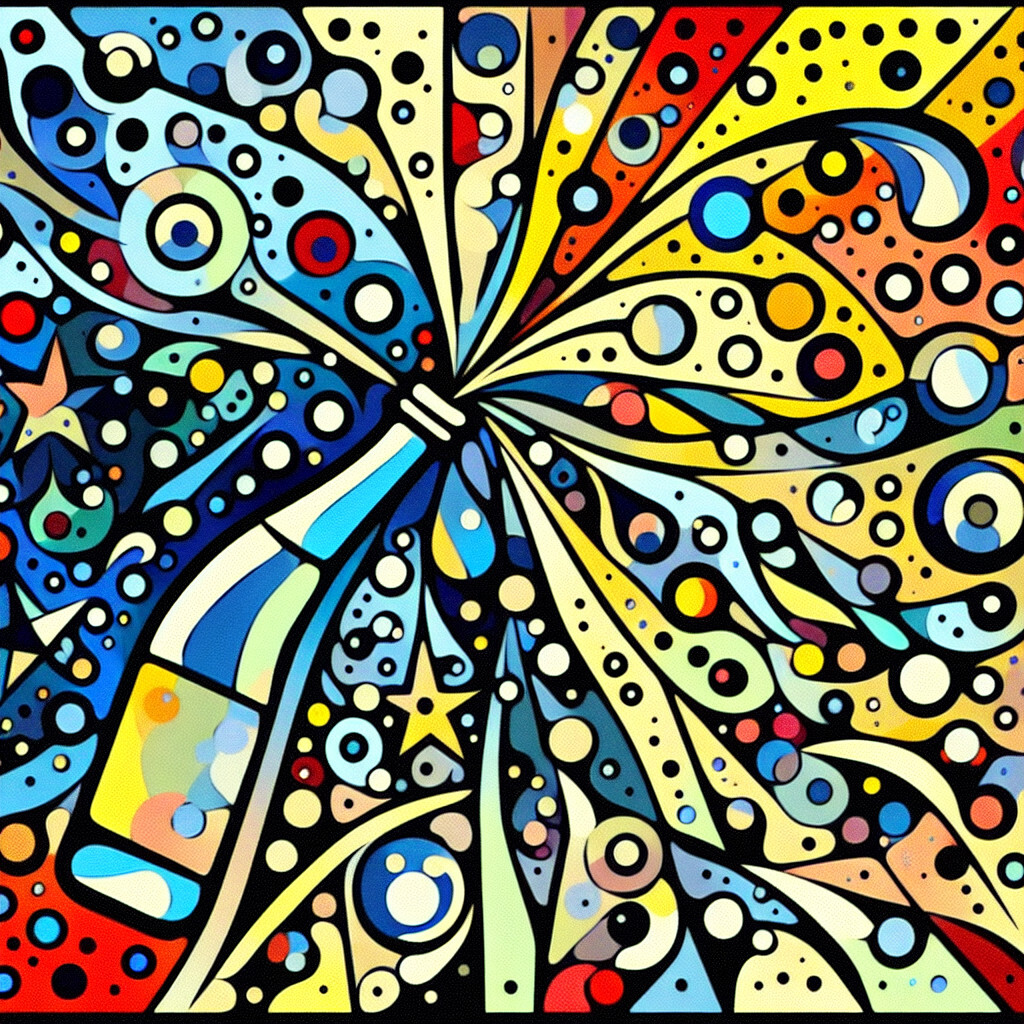-
Table of Contents
“Hydrate Naturally, Nurture Lovingly: Sparkling Water for Breastfeeding Moms.”
Introduction

Sparkling water breastfeeding refers to the consumption of carbonated water by nursing mothers. It is a topic of interest due to the increasing popularity of sparkling water and concerns about its potential effects on breastfeeding. Some mothers may choose to drink sparkling water as a low-calorie, sugar-free alternative to other beverages. However, it’s important to understand how it might affect the mother’s hydration levels, milk production, and the baby’s health. While generally considered safe in moderation, excessive intake may lead to issues such as decreased milk supply or digestive discomfort in the baby.
The Impact of Sparkling Water on Breastfeeding: A Comprehensive Guide
Breastfeeding is a critical period in a mother’s life, where she provides her newborn with essential nutrients for growth and development. During this time, it is crucial for mothers to maintain a healthy diet and stay well-hydrated. One beverage that has gained popularity among breastfeeding mothers is sparkling water. This article aims to provide a comprehensive guide on the impact of sparkling water on breastfeeding.
Sparkling water, also known as carbonated water, is a refreshing beverage that contains dissolved carbon dioxide gas, which creates a fizzy sensation. It is often consumed as a healthier alternative to sugary soft drinks. However, many breastfeeding mothers wonder if it is safe to consume sparkling water and how it might affect their milk production and the baby’s health.
Firstly, it is important to note that staying hydrated is essential for breastfeeding mothers. Adequate hydration helps maintain a healthy milk supply, as breast milk is approximately 88% water. While plain water is the best source of hydration, sparkling water can also contribute to daily fluid intake. It is generally safe for breastfeeding mothers to consume sparkling water, provided it does not replace nutrient-dense beverages and foods necessary for a balanced diet.
However, it is crucial to consider the potential effects of sparkling water on the mother and the baby. Some mothers may experience bloating and gas due to the carbonation in sparkling water. This discomfort might discourage them from drinking enough fluids, potentially impacting their milk supply. Moreover, while there is no direct evidence that the carbonation in sparkling water can pass into breast milk and cause the baby to have gas, some mothers have reported such instances. Therefore, if a mother or her baby experiences discomfort after she consumes sparkling water, it might be best to limit its intake.
Another aspect to consider is the sodium content in sparkling water. Some brands may contain high levels of sodium, which can lead to increased thirst and potentially high blood pressure. Therefore, it is advisable for breastfeeding mothers to choose low-sodium or sodium-free options.
Furthermore, flavored sparkling water may contain added sugars or artificial sweeteners, which should be consumed in moderation. Excessive sugar intake can lead to weight gain and other health issues. While artificial sweeteners are generally considered safe during breastfeeding, some studies suggest potential risks. For instance, some sweeteners might alter gut microbiota, which could potentially affect the baby’s developing immune system. Therefore, it is recommended to choose sparkling water without added sugars or artificial sweeteners.
In conclusion, while sparkling water can be a refreshing beverage choice for breastfeeding mothers, it is important to consume it mindfully. Mothers should monitor their body’s response and their baby’s behavior after consuming sparkling water. If any discomfort is noticed, it might be best to limit its intake. Additionally, choosing low-sodium, sugar-free, and artificial sweetener-free options can help maintain a healthy diet during breastfeeding. As always, when in doubt, it is best to consult a healthcare professional or a lactation consultant.
Understanding the Effects of Carbonated Drinks on Lactation
Breastfeeding is a critical period in a mother’s life, where she provides essential nutrients to her newborn. During this time, it is crucial for mothers to maintain a healthy diet and stay hydrated. However, many mothers wonder if they can consume carbonated drinks, such as sparkling water, during breastfeeding. This article aims to shed light on the effects of carbonated drinks on lactation.
Firstly, it is important to understand what sparkling water is. Sparkling water, also known as carbonated water, is water into which carbon dioxide gas has been dissolved under pressure. This process gives the water a fizzy or bubbly sensation, making it a popular choice for those who want a refreshing alternative to still water. However, the question remains: is it safe for breastfeeding mothers?
The good news is that sparkling water is generally safe for breastfeeding mothers. It is essentially water, and therefore, it helps to keep the body hydrated. Hydration is crucial for lactation as it aids in the production of breast milk. However, it is worth noting that not all sparkling waters are created equal. Some brands may add sugars, artificial sweeteners, or other additives that may not be beneficial for a breastfeeding mother or her baby. Therefore, it is advisable to choose plain sparkling water without any added sugars or artificial flavors.
While sparkling water is generally safe, excessive consumption of carbonated drinks may lead to discomfort. Carbonated drinks can cause gas and bloating due to the release of carbon dioxide in the stomach. This discomfort may not directly affect lactation, but it can make the breastfeeding process uncomfortable for the mother. Therefore, moderation is key when consuming sparkling water or any other carbonated drinks.
Furthermore, it is essential to consider the caffeine content in some carbonated drinks. Some sparkling waters and other carbonated beverages may contain caffeine. High caffeine intake can lead to dehydration, which can negatively impact milk production. Additionally, caffeine can pass into breast milk and may cause irritability or sleep disturbances in some babies. Therefore, breastfeeding mothers should limit their caffeine intake and opt for caffeine-free sparkling water or other beverages.
In conclusion, sparkling water can be a part of a breastfeeding mother’s diet, provided it is consumed in moderation and is free from added sugars, artificial flavors, and caffeine. It is always advisable for breastfeeding mothers to maintain a balanced diet and stay hydrated with a variety of fluids, including water, milk, and fresh fruit juices. If a mother chooses to include sparkling water in her diet, it is recommended to opt for brands that are natural and free from any additives.
However, every individual is unique, and what works for one may not work for another. Therefore, if a breastfeeding mother experiences any discomfort or adverse effects after consuming sparkling water or any other carbonated drinks, it is advisable to consult a healthcare professional. They can provide personalized advice based on the mother’s health condition and dietary needs. Remember, the health and well-being of both the mother and the baby are of utmost importance during the breastfeeding period.
Sparkling Water and Breastfeeding: Health Benefits and Risks
Breastfeeding is a critical period in a mother’s life, where she needs to maintain optimal health to provide the best nourishment for her baby. One of the key aspects of maintaining good health is staying well-hydrated. While water is the best source of hydration, many women may wonder if sparkling water is a suitable alternative. This article aims to shed light on the health benefits and potential risks associated with consuming sparkling water during breastfeeding.
Sparkling water, also known as carbonated water, is a popular beverage choice due to its refreshing taste and texture. It is essentially water into which carbon dioxide gas has been dissolved under pressure, resulting in a fizzy drink. It is important to note that not all sparkling waters are created equal. Some contain added sugars, artificial sweeteners, or other additives, while others are simply water and carbonation. For breastfeeding mothers, it is advisable to choose the latter to avoid unnecessary intake of sugars and artificial ingredients.
One of the primary benefits of sparkling water is its ability to aid in hydration. Staying hydrated is crucial for breastfeeding mothers as it helps maintain an adequate milk supply. Sparkling water can be an appealing alternative for those who struggle to consume the recommended daily intake of plain water. It provides the same level of hydration as still water, with the added bonus of a pleasing, bubbly sensation.
Moreover, sparkling water can also aid in digestion. The carbonation in sparkling water can help to alleviate indigestion and constipation, common issues faced by many new mothers. It stimulates the nerves responsible for swallowing, which can help to reduce feelings of nausea or discomfort.
However, while sparkling water has its benefits, it is not without potential risks. One of the main concerns is its potential impact on dental health. The carbonation process results in a slightly acidic beverage, which can contribute to tooth enamel erosion if consumed in large quantities over time. Therefore, moderation is key when incorporating sparkling water into your hydration routine.
Additionally, some people may experience bloating or gas due to the carbonation in sparkling water. While this is not harmful, it can cause discomfort. If you find that sparkling water causes you to feel bloated or gassy, it may be best to limit your intake or stick to still water.
In conclusion, sparkling water can be a beneficial addition to a breastfeeding mother’s diet, provided it is consumed in moderation and is free from added sugars and artificial ingredients. It can help to maintain hydration levels and aid in digestion. However, due to its potential impact on dental health and its potential to cause bloating or gas, it is important to monitor your body’s response to sparkling water. As with any dietary changes during breastfeeding, it is always best to consult with a healthcare professional or a lactitian to ensure that it is suitable for your specific needs.
The Role of Hydration in Breastfeeding: Is Sparkling Water a Good Choice?
Breastfeeding is a critical period in a mother’s life, where she provides her newborn with essential nutrients for growth and development. During this time, maintaining proper hydration is crucial for the mother’s health and the production of breast milk. While water is the most common source of hydration, many mothers wonder if sparkling water can be a good alternative.
Hydration plays a pivotal role in breastfeeding. The human body is approximately 60% water, and breast milk is composed of about 88% water. Therefore, it is not surprising that breastfeeding mothers have an increased need for fluids. Dehydration can lead to a decrease in milk supply, making it difficult for the mother to meet her baby’s nutritional needs.
Water is the most straightforward and accessible source of hydration. It is recommended that breastfeeding mothers drink at least eight cups of water per day, although this amount can vary depending on individual needs. However, some mothers may find plain water unappealing or monotonous, leading them to seek alternatives.
Sparkling water has gained popularity in recent years as a refreshing alternative to plain water. It is simply water that has been infused with carbon dioxide under pressure, giving it a fizzy texture. Some brands also add natural flavors to enhance the taste, making it a more appealing option for those who find plain water bland.
But is sparkling water a good choice for breastfeeding mothers? The answer is yes, with a few caveats. Sparkling water can indeed help meet the increased fluid needs of breastfeeding mothers. It is hydrating, calorie-free, and can be a refreshing change from plain water.
However, it is important to note that not all sparkling waters are created equal. Some brands may add sugar, artificial sweeteners, or other additives that can be unhealthy when consumed in large amounts. Therefore, it is crucial to read the label and choose a brand that is free of these additives.
Additionally, while sparkling water is hydrating, it should not be the only source of hydration. The carbonation in sparkling water can make you feel full faster, potentially leading to a decrease in overall fluid intake. Therefore, it is recommended to alternate between sparkling and plain water to ensure adequate hydration.
There is also a common misconception that the carbonation in sparkling water can lead to gas or bloating in the breastfeeding baby. However, there is no scientific evidence to support this claim. The carbonation in sparkling water does not pass into breast milk, so it should not cause any discomfort to the baby.
In conclusion, sparkling water can be a good choice for breastfeeding mothers looking for a refreshing alternative to plain water. It can help meet the increased fluid needs during this period, provided it is consumed in moderation and as part of a balanced hydration plan. However, it is important to choose a brand that is free of added sugars and artificial sweeteners, and to remember that while sparkling water can be part of your hydration strategy, it should not be the only source. As always, if you have any concerns or questions about your hydration needs during breastfeeding, it is best to consult with a healthcare professional.
Q&A
1. Question: Is it safe to drink sparkling water while breastfeeding?
Answer: Yes, it is safe to drink sparkling water while breastfeeding. It’s important to stay hydrated, and sparkling water can be a good source of hydration.
2. Question: Can sparkling water affect breast milk production?
Answer: No, there is no scientific evidence to suggest that sparkling water affects breast milk production. However, staying hydrated in general can help maintain milk production.
3. Question: Can the carbonation in sparkling water cause gas in breastfed babies?
Answer: There is no direct link between the mother’s consumption of carbonated drinks and gas in breastfed babies. The baby does not ingest the carbon dioxide from the carbonated drinks the mother consumes.
4. Question: Can drinking sparkling water help with milk let-down during breastfeeding?
Answer: There is no scientific evidence to suggest that drinking sparkling water can specifically aid in milk let-down during breastfeeding. However, staying well-hydrated can support overall breastfeeding health.
Conclusion
In conclusion, sparkling water can be consumed while breastfeeding as it keeps the mother hydrated. However, it should be consumed in moderation due to its high sodium content and potential to cause bloating or gas. It’s also important to note that it doesn’t provide any additional benefits to breast milk production compared to regular water.





